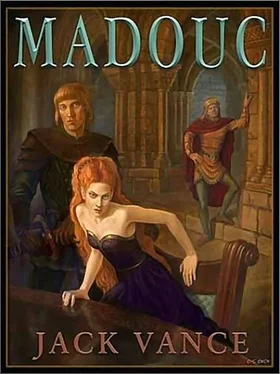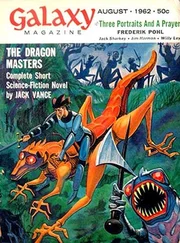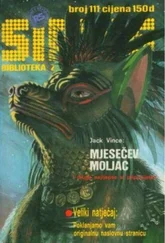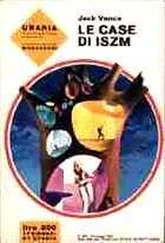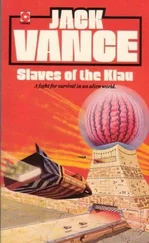Jack Vance - MADOUC
Здесь есть возможность читать онлайн «Jack Vance - MADOUC» весь текст электронной книги совершенно бесплатно (целиком полную версию без сокращений). В некоторых случаях можно слушать аудио, скачать через торрент в формате fb2 и присутствует краткое содержание. Жанр: Фантастика и фэнтези, на английском языке. Описание произведения, (предисловие) а так же отзывы посетителей доступны на портале библиотеки ЛибКат.
- Название:MADOUC
- Автор:
- Жанр:
- Год:неизвестен
- ISBN:нет данных
- Рейтинг книги:5 / 5. Голосов: 1
-
Избранное:Добавить в избранное
- Отзывы:
-
Ваша оценка:
- 100
- 1
- 2
- 3
- 4
- 5
MADOUC: краткое содержание, описание и аннотация
Предлагаем к чтению аннотацию, описание, краткое содержание или предисловие (зависит от того, что написал сам автор книги «MADOUC»). Если вы не нашли необходимую информацию о книге — напишите в комментариях, мы постараемся отыскать её.
MADOUC — читать онлайн бесплатно полную книгу (весь текст) целиком
Ниже представлен текст книги, разбитый по страницам. Система сохранения места последней прочитанной страницы, позволяет с удобством читать онлайн бесплатно книгу «MADOUC», без необходимости каждый раз заново искать на чём Вы остановились. Поставьте закладку, и сможете в любой момент перейти на страницу, на которой закончили чтение.
Интервал:
Закладка:
Jack Vance
MADOUC
CHAPTER ONE
South of Cornwall, north of Iberia, across the Cantabrian Gulf from Aquitaine were the Elder Isles, ranging in size from Gwyg's Fang, a jag of black rock most often awash under Atlantic breakers, to Hybras, the ‘Hy-Brasill' of early Irish chroniclers: an island as large as Ireland itself.
On Hybras were three notable cities: Avallon, Lyonesse Town and ancient Ys,* along with many walled towns, old gray villages, castles of many turrets and manor houses in pleasant gardens.
The landscapes of Hybras were varied. The Teach tac Teach, a mountain range of high peaks and upland moors, paralleled the length of the Atlantic foreshore. Elsewhere the landscape was more gentle, with vistas over sunny downs, wooded knolls, meadows and rivers. A wild woods shrouded the entire center of Hybras. This was the Forest of Tantrevalles, itself the source of a thousand fables, where few folk ventured for fear of en chantment. The few who did so, woodcutters and the like, walked with cautious steps, stopping often to listen. The breathless silence, broken, perhaps, by a far sweet bird call, was not reassuring in itself and soon they would stop to listen again.
In the depths of the forest, colors became richer and more intense; shadows were tinged with indigo or maroon; and who knows what might be watching from across the glade, or perched at the top of yonder stump?
The Elder Isles had known the coming and going of many peoples: Pharesmians, blue-eyed Evadnioi, Pelasgians with their maenad priestesses, Danaans, Lydians, Phoenicians, Etruscans, Greeks, Celts from Gaul, Ska from Norway by way of Ireland, Romans, Celts from Ireland and a few Sea Goths. The wash of so many peoples had left behind a complex detritus: ruined strongholds; graves and tombs; steles carved with cryptic glyphs: songs, dances, turns of speech, fragments of dialect, placenames; ceremonies of purport now forgotten, but with lingering flavor. There were dozens of cults and religions, diverse except that in every case a caste of priests interceded between laity and divinity. At Ys, steps cut into the stone led down into the ocean to the temple of Atlante; each month in the dark of the moon priests descended the steps by midnight, to emerge at dawn wearing garlands of sea flowers. On Dascinet, certain tribes were guided in their rites by cracks in sacred stones, which none but the priests could read. On Scola, the adjacent island, worshippers of the god Nyrene poured flasks of their own blood into each of four sacred rivers; the truly devout sometimes bled themselves pale. On Troicinet, the rituals of life and death were conducted in temples dedicated to the earth-goddess Gaea. Celts had wandered everywhere across the Elder Isles, leaving behind not only place names, but Druid sacrifices in sacred groves, and the ‘March of the Trees' during Beltane. Etruscan priests consecrated their an rogynous divinity Votumna with ceremonies repulsive and often horrid, while the Danaans introduced the more wholesome Aryan pantheon. With the Romans came Mithraism, Christianity, Parsh, the worship of Zoroaster, and a dozen other similar sects. In due course, Irish monks founded a Christian monastery* on Whanish Isle, near Dahaut below Avallon, which ultimately suffered the same fate as Lindisfarne far to the north, off the coast of Britain.
For many years the Elder Isles were ruled from Castle Haidion at Lyonesse Town, until Olam III, son of Fafhion Long Nose, removed the seat of government to Falu Ffail at Avallon, taking with him the sacred throne Evandig and the great table Cairbra an Meadhan, ‘the Board of Notables' ,** and the source of a whole cycle of legends.
Upon the death of Olam III, the Elder Isles entered upon a time of troubles. The Ska, having been expelled from Ireland, settled on the island Skaghane, where they rebuffed all attempts to dislodge them. Goths ravaged the coast of Dahaut; sacking the Christian monastery on Whanish Isle, sailing their longboats up the Cambermouth as far as Cogstone Head, from which they briefly menaced Avallon itself. A dozen princelings vied for power, shedding much blood, wreaking much grief and bereavement, exhausting the land, and in the end achieving nothing, so that the Elder Isles became a patchwork of eleven kingdoms, each at odds with all the rest.
Audry I, King of Dahaut, never abandoned his claim to sovereignty over all the Elder Isles, citing his custody of the throne Evandig as basis for his assertion. His claim was angrily challenged, especially by King Phristan of Lyonesse, who insisted that Evandig and Cairbra an Meadhan were his own rightful property, wrongfully sequestered by Olam III. He named Audry I traitor and caitiff; in the end the two realms went to war. At the climactic battle of Orm Hill the two sides succeeded only in exhausting each other. Both Phristan and Audry I were killed, and finally the remnants of the two great armies straggled sadly away from the bloody field.
Audry II became king of Dahaut and Casmir I was the new king of Lyonesse. Neither abandoned the ancient claims, and peace between the two realms was thereafter fragile and tentative.
So went the years, with tranquillity only a memory. In the Forest of Tantrevalles halflings, trolls, ogres and others less easily defined, bestirred themselves and performed evil deeds which no one dared punish; magicians no longer troubled to mask their identities, and were solicited by rulers for aid in the conduct of temporal policy.
The magicians devoted ever more time to sly struggles and baneful intrigue, to the effect that a goodly number had already been expunged. The sorcerer Sartzanek was one of the chief offenders; he had destroyed the magician Coddefut by means of a purulence, and Widdefut through the Spell of Total Enlightenment. In retaliation, a cabal of Sartzanek's enemies compressed him into an iron post which they emplaced at the summit of Mount Agon. Sartzanek's scion Tamurello took refuge at his manse Faroli, deep within the Forest of Tantrevalles and there protected himself by dint of careful magic.
That further events of this sort might be avoided, Murgen, most potent of the magicians, issued his famous edict, forbidding magicians employment in the service of temporal rulers, inasmuch as such activity must inevitably bring magicians into new conflicts with each other, to the danger of all.
Two magicians, Snodbeth the Gay, so-called for his jingling bells, ribbons and merry quips, and Grundle of Shaddarlost, were brash enough to ignore the edict, and each suffered a severe penalty for his presumption. Snodbeth was nailed into a tub to be devoured by a million small black insects; Grundle awoke from his sleep to find himself in a dismal region at the back of the star Achemar, among geysers of molten sulphur and clouds of blue fume; he too failed to survive.
Although the magicians were persuaded to restraint, travail and dissension elsewhere were rife. Celts who had been placidly settled in the Daut province Fer Aquila became inflamed by bands of Goidels from Ireland; they slaughtered all the Dauts they could find, elevated a burly cattle thief named Meorghan the Bald to the kingship and renamed the land Godelia, and the Dauts were unable to recapture their lost province.
Years passed. One day, almost by chance, Murgen made a startling discovery, which caused him such vast consternation that for days he sat immobile, staring into space. By degrees his resolution returned and at last he set himself to a program which, if successful, would slow and finally halt the momentum of an evil destiny.
The effort preoccupied Murgen's energies and all but eliminated the joy in his life. The better to guard his privacy, Murgen set out barriers of dissuasion along the approaches to Swer Smod, and, further, appointed a pair of demoniac gatekeepers, the better to turn back obstinate visitors; Swer Smod thereupon became a place of silence and gloom.
Читать дальшеИнтервал:
Закладка:
Похожие книги на «MADOUC»
Представляем Вашему вниманию похожие книги на «MADOUC» списком для выбора. Мы отобрали схожую по названию и смыслу литературу в надежде предоставить читателям больше вариантов отыскать новые, интересные, ещё непрочитанные произведения.
Обсуждение, отзывы о книге «MADOUC» и просто собственные мнения читателей. Оставьте ваши комментарии, напишите, что Вы думаете о произведении, его смысле или главных героях. Укажите что конкретно понравилось, а что нет, и почему Вы так считаете.
